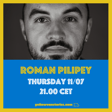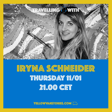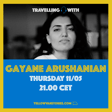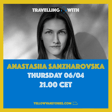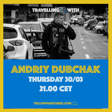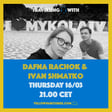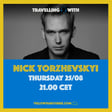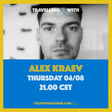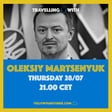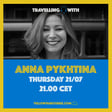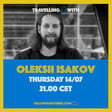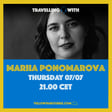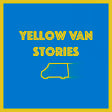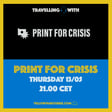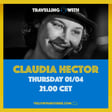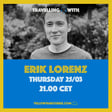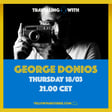
Mykola Kondrashev "Choosing Ukraine"
Mykola Kondrashev is an award-winning cinematographer and photographer based in Kiyv who also holds a master's degree in psychology.
With his experience on a wide array of projects including commercial music videos, feature films, and television series, Mykola has honed his skills to create captivating and powerful visuals.
Mykola’s impressive portfolio of projects spans the globe and he has worked with huge names like Coca-Cola, Radisson and Nescafé.
Mykola’s dedication to his craft is evident in all of his work, and we are excited to welcome him on board the Yellow Van to learn more about his journey as a cinematographer, how his daily routine has changed during the war and how the deep divide of war can split right through the middle of a family.
And, as always, a lot more.
Welcome to the Yellow Van, Mykola!
Shortly after the recording of our episode, Mykola received mail from the army to be registered with them. As I am recording this, Mykola, like countless other Ukrainians is waiting for his marching order. It could come any moment of any day. Alex Kraev from Odessa, who you might remember from one of the previous episodes, has already been at the front for almost two months now. In one of his latest Facebook-Posts, he wrote: "I am not dead, I am learning." War becomes something else entirely when you know the people who are thrown into it.
SHOW NOTES
Nyvky - a suburb of Kyiv
V2 Rockets
Bucha
Irpin
Cossacks
Khokhol
Oseledets
Khmelnytsky Uprising
Takflix, Ukrainian film streaming service
Wladiwostok
Sergei Loznitsa, Ukrainian director
My Joy, film directed by Sergei Loznitsa
Link to the episode with Alex Kraev
Mykola Online
Mykola’s Personal website
Mykola’s Facebook
Mykola’s Instagram
Donations
Civilian: Psychological Association of Ukraine
Military: Eyes On Ukraine, Support for Drones
Love In The Face Of Fear, Jim Kroft
Yellow Van Stories is a Mind the Bump Production.
